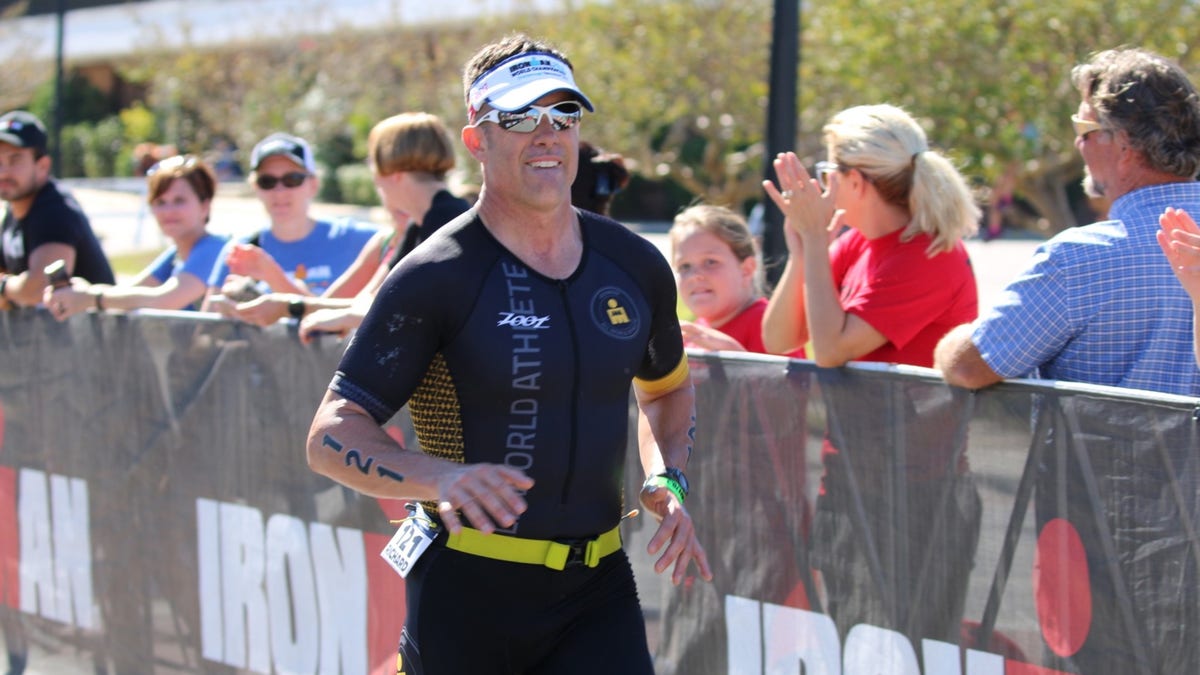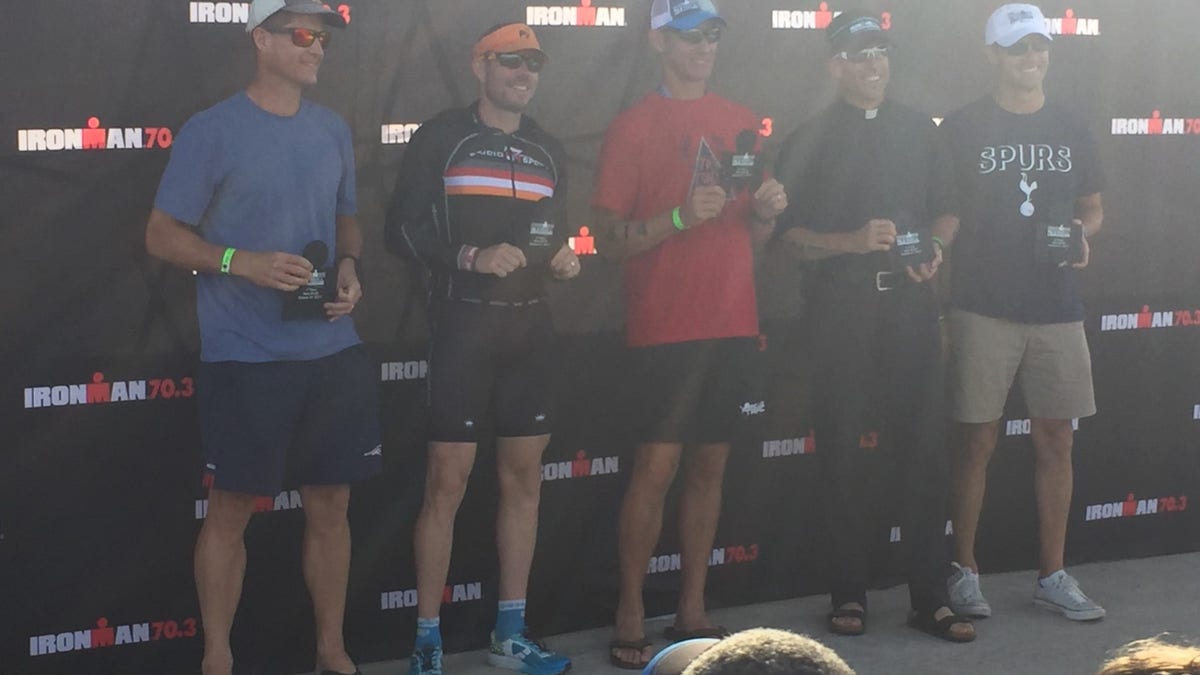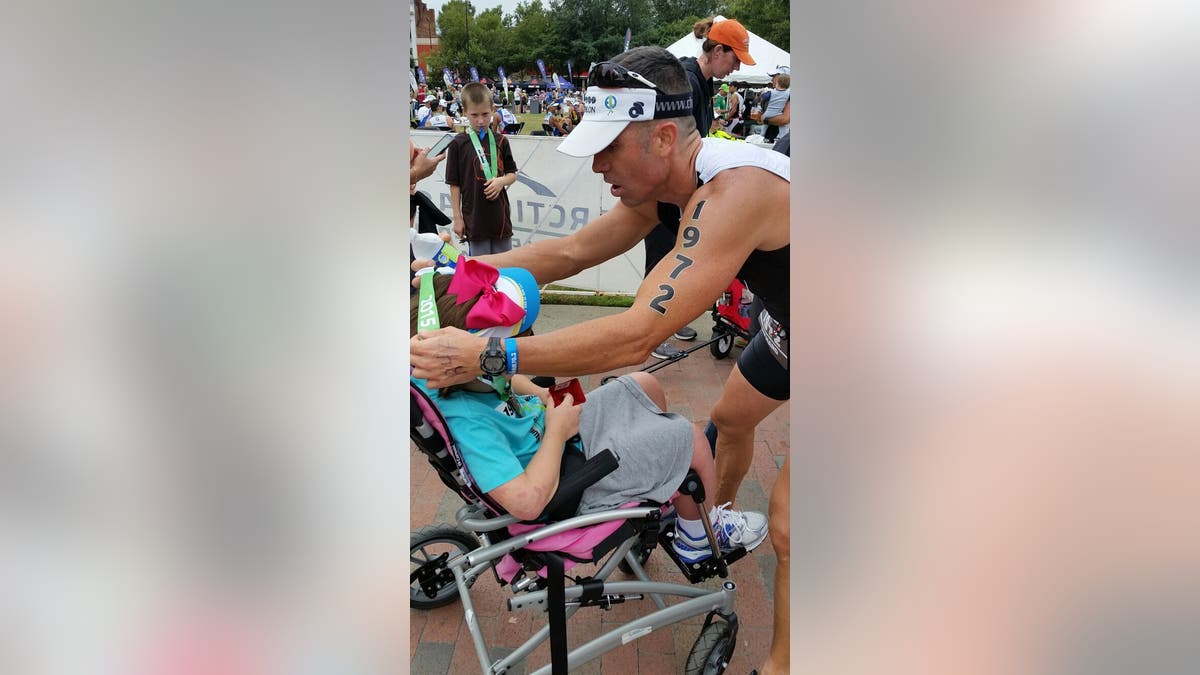
(iStock)
John Lennon said life is what happens to you while you’re busy making other plans. It’s taken me only 47 years, but I am beginning to understand what he meant.
Into my early forties I was busy planning every detail of my life. This now, that later. I wrote the script and starred in the production. But I began to drift a little from my core values, two in particular.
First, friends. Simply put, I had plenty of them, and wasn’t in the market for more. Life was busy, and frankly I hadn’t the time. This from a guy who as a child loved “It’s A Wonderful Life” so much that he placed Clarence the Angel’s reminder to George Bailey – “no man is a failure who has friends” - on his senior yearbook page in 1989.
Second, outlook. I had the good fortune to graduate that year from a Jesuit high school. Here the importance of living as a “Man for Others” was drilled into us unbridled colts from the very first day of freshman year. I’d gotten away from that principle, too.
Two simple ideas, courtesy of Frank Capra and the Jesuits. More on them later, but back to that well-planned life.
In April 2016 I received a diagnosis of melanoma. This wasn’t the plan. Thankfully it was stage 0, so nothing like the cancer scares that others experience. Still, it required substantial surgery and, one day afterward while sitting uncomfortably on a plane, I was feeling sorry for myself. Then I met Jeff Guillebeau.
He was seated next to me on the flight home to Charlotte. As an investment in armrest relations, I offered Jeff a stick of gum, handing him the pack. He proceeded to remove one stick from the pack, and hand that lonely stick back to me. Then he put my nearly full pack in his chest pocket, and reacquainted himself with his newspaper.
Jeff side-eyed me as I, suddenly short 14 sticks of gum, contemplated fight-or-flight. Then, laughing, he confirmed that he was just messing with me. A good-natured discussion followed on the YouTube sensations we’d have been had the situation deteriorated. Through the laughter Jeff made one thing clear: a fight wouldn’t have been a good idea, as he’d have knocked me around “like a screen door in a hurricane.”
I don’t generally talk to seatmates on planes, but something about this colorful guy from the North Carolina mountains drew me in.
We chatted animatedly for about three-quarters of the flight. Then Jeff invited me into what sounded like an elite group of guys who train together every week.
Instantly my “non-joiner” warnings flashed red and I demurred, citing my recent cancer surgery. This was Jeff’s answer to that:
“Son, I had open-heart surgery a few months back, but whatever. I’m not going to ask you twice.”
He went back to his newspaper, and we rode out the remainder of the flight in silence. We traded business cards when we touched down, but it was mostly a courtesy. I never planned on seeing Jeff again.
When I got home that night, a strange thing happened. I had what my wife Devin calls my “Field of Dreams” moment. It went something like this:
“I have this strange feeling,” I began, “that I’m supposed to be at the park at 6:30 this Saturday morning, to work out with a bunch of guys I’ve never met before.”
Devin was shocked. My fitness level was serviceable, but my early morning habits to date were more Athenian than Spartan.
“The last time you voluntarily got up that early on a weekend, your parents were driving you to summer camp. Why are you doing this?” she asked.
“Because anyone who can verbally manhandle me the way this guy just did is worth getting to know a little better.”
What followed was a rededication not only to physical fitness, but to fellowship. Not for the sake of career advancement, social standing, or anything like that. Simply for its own reward.
Bonding around the fun stuff, sure – the laughter, the ribbing -- but also around the real stuff – aging, death, job loss, suicide, marital difficulties, faith and doubt, parenting challenges, and more health scares.
Falling in with Jeff and rest of the Campos – they know who they are – is the best thing that’s happened to me in a long time. And it happened because for once I stopped planning and went with the flow.
Around the same time as the melanoma diagnosis, another herald descended, this time in the more traditional setting of a Roman Catholic Church. The first time I heard this man preach, I knew he was not your average priest.
There were clues: the high-and-tight haircut, a “walk with a purpose” gait and an apparent fondness for phrases like “locked in,” “squared away” and “mission.” Not even his vestments could hide the fact that this clergyman was extremely fit.
From the pews he seemed a study in contrasts, a warrior priest who found joy in duty and measured strength in gentleness.
This was no accident.
Before entering the seminary Father Richard Sutter, a diocesan priest in Charlotte, North Carolina, served for six years as a U.S. Army Airborne Ranger Infantry Officer. Before that he completed the U.S. Army Airborne, Ranger and Air Assault Schools.
The sermons on trading suffering for glory, about crossing the ridgeline before nightfall suddenly made sense. But it wasn’t until I came to know Father Richard outside of church that I took his full measure. You see, Father Richard is also a triathlete.
And not just any triathlete. In each of the last three years, Father Richard has achieved an Ironman All World Athlete Gold ranking. This means he placed in the top 1 percent worldwide for his age group (45-49-years-old). When he makes the podium - which is often – he’s rather easy to identify.
Once I asked him why he competes, busy as he is with so many diocesan duties. In the succinct words of a military man, he told me simply that he runs for others. For children like Frances Brown of Augusta, Georgia who, born with a rare genetic syndrome called Macrocephaly Capillary Malformation, passed away two months ago.

Father Richard raced for Frances in 2015, in the Ironman 70.3 Augusta event. Her fortitude in the face of her life’s constant adversity propelled Father Richard to 35th place out of 3,400 competitors and 4th place overall in his age group, earning him a slot in the following year’s Ironman 70.3 World Championship in Australia.
This is where my friend does his finest preaching. He uses his gifts to, in his own words, meet people where they are – the literal highways and byways of grueling endurance events -- and helps them go beyond the race. This is what it means to compete -- and by extension live -- for something other than ourselves.

How fitting that he dedicated his best race to young Frances Brown, for Father Richard follows the example of St. Francis of Assisi: “Preach the Gospel at all times. When necessary, use words.”
How lucky I am to call him my friend.

So back to “It’s A Wonderful Life” and the Jesuits. Like Clarence the Angel, Jeff Guillebeau appeared in my life to remind me that no man is a failure who has friends. And the warrior priest Father Richard, like fellow soldier and Jesuit founder St. Ignatius of Loyola, reminds me that the truly good life is lived for others.
These are important things I once knew well but had forgotten. I am grateful that each man, one earthy and the other sublime, has crossed my path. I know it’s not an accident.